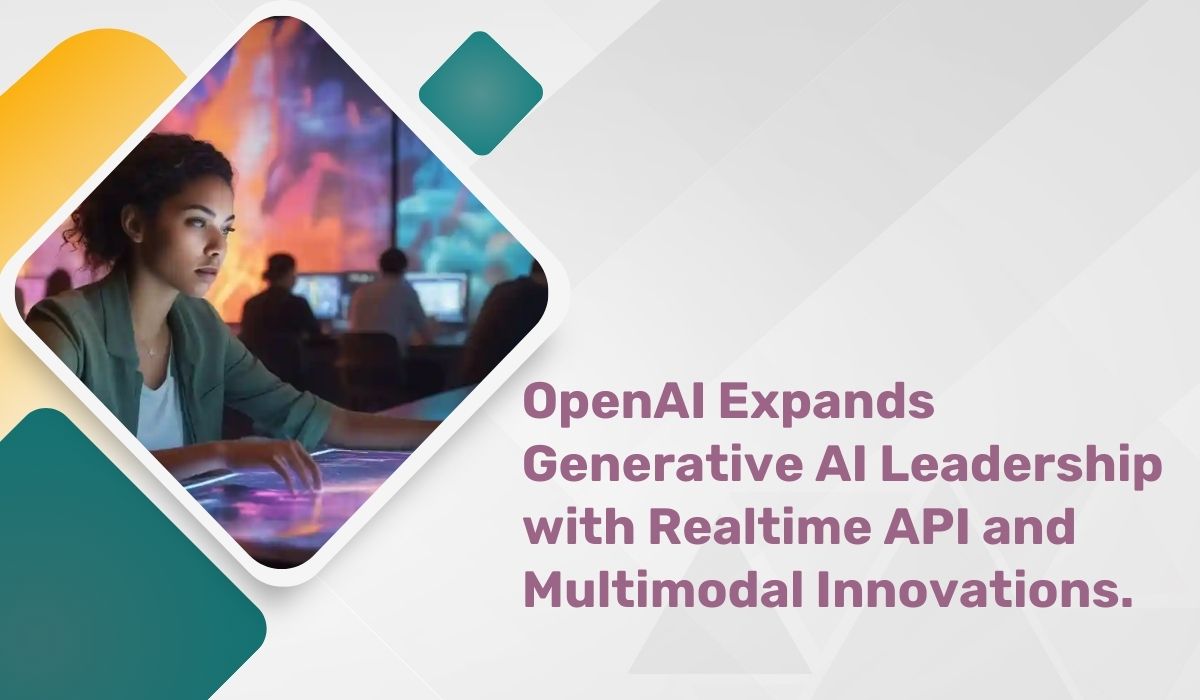
OpenAI has further cemented its dominance in the artificial intelligence space with the launch of its revolutionary Realtime API, unveiled at the highly anticipated DevDay event. This innovative tool enables developers to create low-latency, real-time voice interactions and multimodal experiences, pushing the envelope for AI-driven applications across multiple industries, including telecommunications, healthcare, and customer support.At the heart of OpenAI’s Realtime API is its speech-to-speech functionality, which allows developers to integrate real-time voice communication into their applications.
This groundbreaking feature delivers natural, human-like conversations with AI assistants, improving the efficiency of voice-based interactions. Its potential spans from customer service to personal assistants, marking a significant leap in AI communications.OpenAI has introduced six distinct, lifelike AI voices, distinct from those in ChatGPT. These voices are tailored to provide a personalized user experience, offering developers a robust set of options for crafting more immersive, human-like interactions. This advancement is expected to transform sectors reliant on conversational AI, such as virtual assistance and customer service.
The Realtime API not only supports voice but also text input and output, creating a versatile platform for developers to craft AI-powered experiences that integrate speech-to-text, text-to-speech, and speech-to-speech functionalities. The API also introduces function-calling capabilities, allowing AI to perform specific tasks in real-time, automating processes and improving interaction efficiency across industries.During DevDay, OpenAI showcased the API’s potential through a travel assistant application. The AI assistant provided real-time verbal recommendations for a trip to London, even marking restaurant locations on a map. The demonstration highlighted the utility of the API in personalized services and real-time interactions, opening doors for innovation in travel, e-commerce, and beyond.
A partnership with Twilio, a global communications platform, extends the Realtime API’s reach to over 300,000 customers and 10 million developers. This collaboration enables developers to tap into advanced conversational AI technologies, creating sophisticated applications in healthcare, retail, and more. In addition to the Realtime API, OpenAI introduced several new features aimed at empowering developers. Vision fine-tuning allows images to enhance GPT-4’s visual task performance, while prompt caching and model distillation improve cost efficiency and performance. These innovations make AI more accessible to smaller businesses, fostering rapid development in industries such as autonomous vehicles and medical imaging.
The Realtime API’s potential to disrupt industries is immense, especially in sectors like telecommunications, where AI-driven conversations could replace outdated systems. However, the rapid adoption of this technology also brings ethical concerns, particularly in disclosing AI-generated voices. OpenAI emphasizes the importance of transparency in AI interactions to maintain ethical standards.
OpenAI’s Realtime API represents a groundbreaking shift in AI development, setting a new standard for real-time, multimodal interactions. Through its partnership with Twilio and the introduction of cost-efficient, scalable solutions, OpenAI continues to lead the generative AI space, offering businesses the tools to transform their customer experiences and streamline operations. As AI evolves, the Realtime API positions OpenAI at the forefront of the future of human-computer interaction.